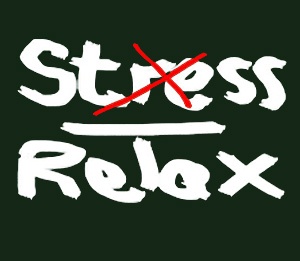
Question: When you’re under stress, how cathartic would it be to be able to tell an annoying client exactly what you think of her, allowing for every colorful swear word you can think of? Or to tell a manager exactly where he can stick his new stretch targets?
Answer: Amazingly cathartic, but incredibly tactless and likely to cost you your job. Thankfully, there are better ways to bust stress – without busting someone’s lip. Here are some great exercises to improve your coping skills:
Exercise 1: Small changes can make a big difference
Take a good look at your lifestyle and work approach. Is there anything you are currently doing that may be increasing your stress level? If so, try to implement some small modifications in your day-to-day habits. For example:
| Life Area |
Stressor |
Small change |
|
Eating habits |
I skip breakfast. This makes me really hungry before my lunch break, which makes me feel cranky and distracted. |
Make my breakfast the night before – something that’s quick to eat but filling like a shake or toast. |
|
Lifestyle habits |
I always feel rushed in the morning. By the time I roll out of bed, get dressed and make my lunch, it’s already time to leave. |
Set my alarm 20 minutes earlier than my usual time, and maybe even hit the sack 20 minutes earlier. It won’t affect my sleep all that much, but I’ll have a little extra time so I won’t feel rushed. |
|
Work habits |
If I don’t feel the pressure of an oncoming deadline, I don’t feel motivated to get projects started. But then I’m left rushing at the last minute to get things done. |
Set an artificial deadline ahead of the actual deadline – at least a few days before. This will provide a buffer of time in case something unexpected comes up, and pushes me to get things done rather than procrastinating. |
Exercise 2: Know your triggers
Stress acts like tendrils of a vine: if you don’t keep it under control, it will spread all over the place, affecting your work and your relationships. So it’s essential to nip stress in the bud. The first step: Uncover your stress triggers.
Without thinking about it too much, write down 10 things that stress you out at work. Rank each stressor on a scale from 1 to 5 based on how often you are exposed to the stressor, and how much it impacts you in a negative way. When you’re done, multiply your frequency rating by impact rating. Then rank your triggers according to their score. Essentially, the higher the score, the more debilitating the stressor.
|
Trigger |
Frequency |
Impact |
Score |
Rank |
|
Endless and unnecessary meetings |
4 |
4 |
16 |
1 |
|
Colleagues talking too loud on the phone |
5 |
2 |
10 |
3 |
|
Client asking for last-minute changes to projects that were not part of the original scope |
3 |
5 |
15 |
2 |
Once you know what stresses you out the most, you can either take action to reduce the stressor’s impact (like using ear plugs or noise-cancelling headsets), or develop effective coping strategies (e.g. develop procedures for last minute changes).
Exercise 3: Progressive Relaxation
Now that you have uncovered the most common stressor you face, the next step is to learn how to release that stress in a healthy way. Deep breathing, although seemingly basic, has a significant impact on stress level. Why? Deep breathing is physiologically incompatible with the adrenaline-pumping aspect of stress. This exercise can be done during a break at work, either outside, at your desk, in your car, or in the bathroom.
- Sit comfortably
- Focus your attention on the present. You can use a focal point, like the rise and fall of your diaphragm as you breathe in and out.
- Clear your mind of thoughts. If a thought slips in, let it through without giving it too much energy or attention.
- Take deep breaths. Breathe in through your nose, slowly counting to 4, and then exhale through your nose slowly counting to 4.
- With each breath in and out, feel your body get heavier.
- Continue to breathe in an out, focusing on the rise and fall of your diaphragm. Do this for at least 5 minutes, 10 if possible.
If you’re interested in using BSS - NSF - R2 (Burnout Symptom Screener - For Non-Service Fields - 2nd Revision), BSS - SF - R2 (Burnout Symptom Screener - For Service Fields - 2nd Revision) or other assessments, request a free trial for ARCH Profile here.
Want to learn more about using psychological tests for hiring, leadership development, career development or talent retention? Download our free eBook loaded with down-to-earth information about psychological testing for HR purposes.


